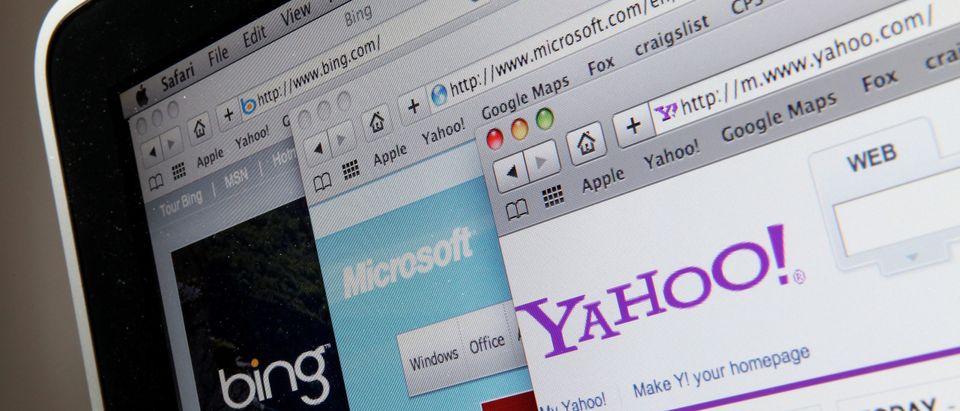Misinformation is everywhere on the internet, and it’s overwhelming. Americans of all ages are struggling to determine what is reliable, accurate information online related to COVID-19, the election and protests nationwide.
We are in the midst of a pandemic but also an infodemic.
Wiktionary defines infodemic as “1. An excessive amount of information concerning a problem such that the solution is made more difficult.” or “2. A wide and rapid spread of misinformation.” This is how people are using this term now and they are right to.
According to Pew Research Center, about half of the country finds it difficult to determine what is true and not true about the outbreak, about two-thirds say they’ve seen at least some made-up news about the pandemic, and most say it is causing confusion about the basic facts of the situation.
But it’s interesting that the term “infodemic” dates back to a Washington Post column in 2003 about the SARS outbreak by David J. Rothkopf. He defined “infodemic” as “A few facts, mixed with fear, speculation and rumor, amplified and relayed swiftly worldwide by modern information technologies, have affected national and international economies, politics and even security in ways that are utterly disproportionate with the root realities.”
The term resurfaced in mid-February but with a different meaning. Tedros Adhanom Ghebreyesus, Director-General of the World Health Organization (WHO) said, “We’re not just fighting an epidemic; we’re fighting an infodemic,” to a group of foreign policy and security experts in Munich. He was referring to misinformation that “spreads faster and more easily than the virus.”
I believe the virus is real, deadly and we should all take cover. My mother is 71 years old and high risk, and we have been very cautious from the beginning.
But I count myself lucky in that I am equipped with the tools to detect what is trustworthy information online. I’m a third generation journalist with more than 17 years of experience working in newsrooms. Research from the Stanford History Education Group has shown that fact-checkers (i.e. journalists) are significantly better at evaluating the credibility of information on the internet than other folks.
This is what the MediaWise project, a digital media literacy initiative of The Poynter Institute, is all about. We teach people of all ages how to find reliable, accurate information online using fact-checking skills. And it’s not rocket science. Anyone can do it.
Everyone should consider making an effort to learn some of these skills. If you think you’ve seen a lot of misinformation on your social media timelines over the past six months, just wait. Between now and Election Day it’s going to blow up, and when a coronavirus vaccine is within arm’s reach, we will see even more.
So what can you do to get started? Here are some of the basics we teach with the MediaWise project. We have programs for Americans of all ages, from teenagers to college students to senior citizens (and more to come next year). At the end of this piece you’ll find links to additional online courses and resources to keep learning.
The Stanford History Education Group developed 3 key questions based on their research of how fact-checkers do their jobs and verify information online. Anyone can start analyzing information online by asking themselves these questions when scrolling through their feeds:
-
Who is behind the information?
-
What is the evidence?
-
What are other sources saying?
These are like the “who, what, where, when, why and how?” questions that are taught in Journalism 101 classes nationwide (more on those here). If you only have time for one question, focus on “Who is behind the information?” Take a look at the person/account/organization posting the information. Are they an expert on the subject? Do they seem trustworthy? Any potential bias? Anything fishy going on with their account? What have they shared in the past? Open up a new tab and do a web search for more information about them. This can take all of 30 seconds or so and help anyone determine if the information they are sharing is credible and reliable. Everyone should be 100% confident that information is 100% true before liking it, sharing it, taking it as fact and letting it influence real life decisions.
This last part is crucial during an election year. The race is on for our attention on the internet and that means on social media, on our phones, you name it. Millions of dollars are being spent to grab our attention and influence our votes. EVERYONE is a target, so wake up and pay attention to what you are seeing online. Don’t be a passive doomscroller, be active, engaged and on high alert. Make no mistake, there are bad actors abroad and domestically who are feeding us inaccurate and damaging information that could influence who we choose to vote for, how we choose to protect ourselves against COVID-19 and many other issues.
Don’t be a part of the problem, be a part of the solution. Fact-check before you share something on social media or take it as fact and let it influence your vote — our democracy depends on it.
Disclosure: Check Your Fact, a subsidiary of the Daily Caller, is part of the Poynter Institute’s International Fact-Checking Network and a partner in Facebook’s fact check program.
Katy Byron is the editor and program manager of the MediaWise project at The Poynter Institute. MediaWise is a digital media literacy initiative for Americans of all ages. Byron is a third generation, award-winning journalist. She is the former managing editor of news at Snapchat. Follow her on Twitter @KABGreek. For more information about MediaWise visit poynter.org/mediawise.


